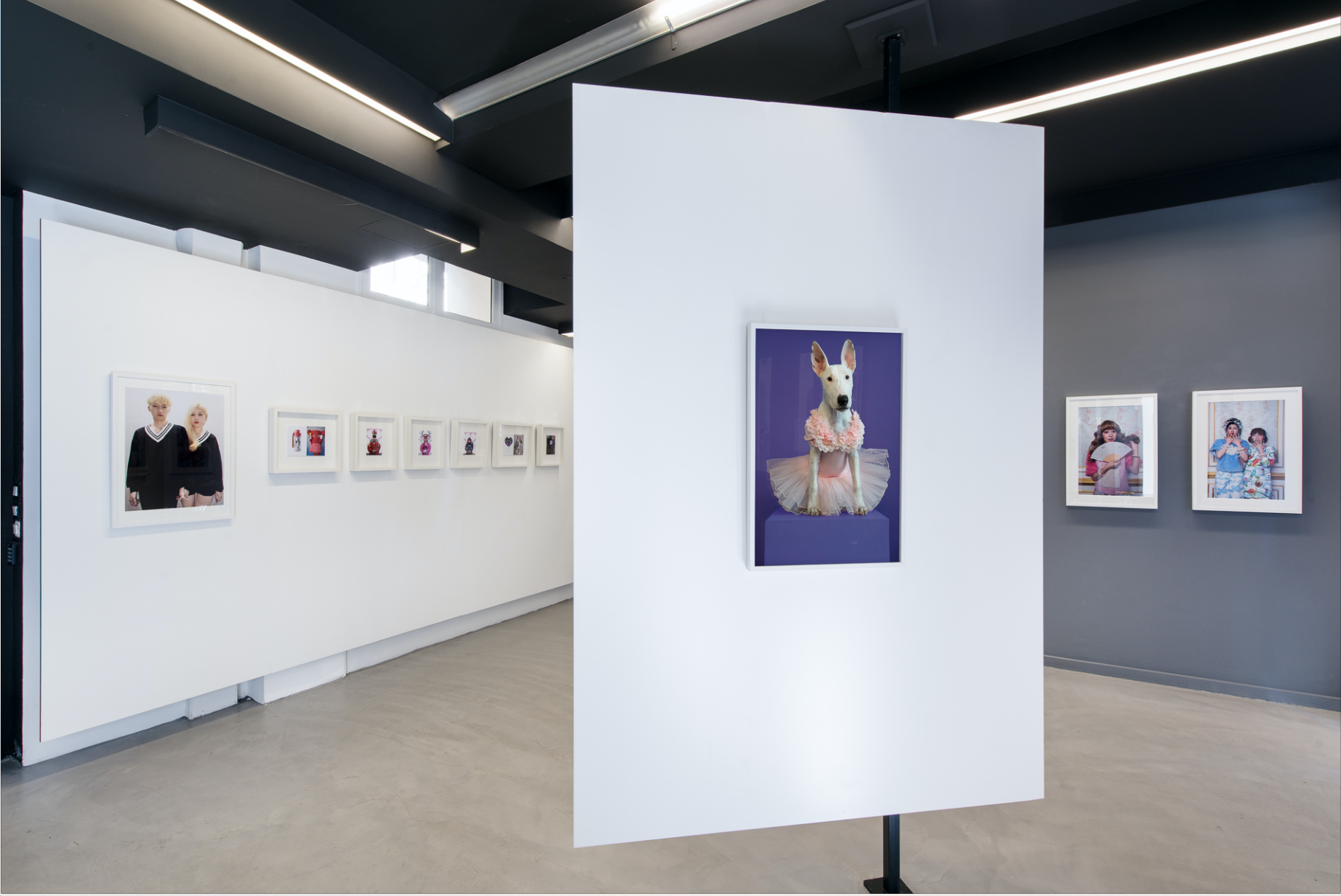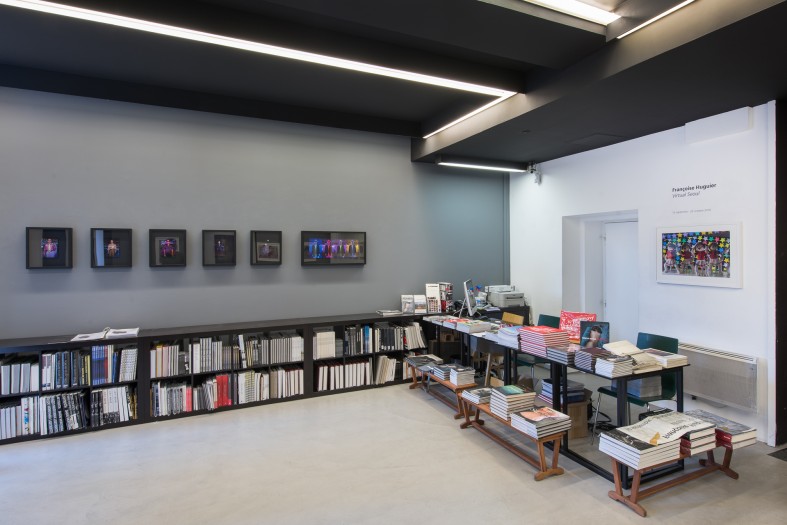Françoise Huguier
Galerie Polka is pleased to present “Virtual Seoul”, a new series by photographer Françoise Huguier, 2016 winner of the Albert Kahn prize.
“Virtual Seoul” captures the diversity and eccentricity of today’s South Korea. Thought as a very colorful walk through a virtual and postmodern capital city where every generations meet, the exhibition explores the many-sided identity of this dynamic and avant-garde metropolis.
Françoise Huguier discovered Seoul and Korea during a long trip across South-East Asia in 1982. Back then, the country was just coming out of the war and slowly initiating its great change. Thirty years later, in 2014, the French photographer came back to follow in her own footsteps. Fascinated by globalization and the overwhelming presence of technology, she staid several months in Seoul and worked on this ultramodern city for over a year. The result is the intergenerational portrait of a society torn between traditions and a race for development.
She quickly discovered the “K-pop” movement (short word for Korean pop, the current dominant musical trend in Korea) broadcasted by every radio in the country and strongly impacting youngster’s fashion. She then met one of many successful girls bands named “Laboum”, sponsored by a plastic surgery private practice. The 14 to 18 years-old members of this band all have the same features: the artificial “V”-shaped face (as a result of many plastic surgeries) considered to be the perfect face, stripped off the Asian natural roundness and very much in fashion among the young Korean generation. “In some streets frequented by youngsters, I sometime felt like I was seeing the same person constantly. The strange impression of walking among mutants”, says the photographer.
While exploring the lifestyle of the South-Korean youth, Françoise Huguier also captured the pioneers of national reconstruction after the war, “this generation sacrificed in the name of economic miracle”, people who end up in slums if not taken care of by their children. The photographer entered in their intimacy, and met retired people dressed up in neat spangled outfits who spend their days dancing with their “lovers” in colatheques.
Françoise Hugier’s photographs reveal the multifaceted evil of the modern South-Korean society: a constant fear of economic downgrading - though in a flourishing industrial context that has turned the country into the 13th world economic power-, combined with a deep angst and distress among the young generation. By looking into the depths of Korean soul, the French photographer documents the changes at work in a country where Confucianism values continue to prevail. In 2017, she plans to extend her work to North Korea.







